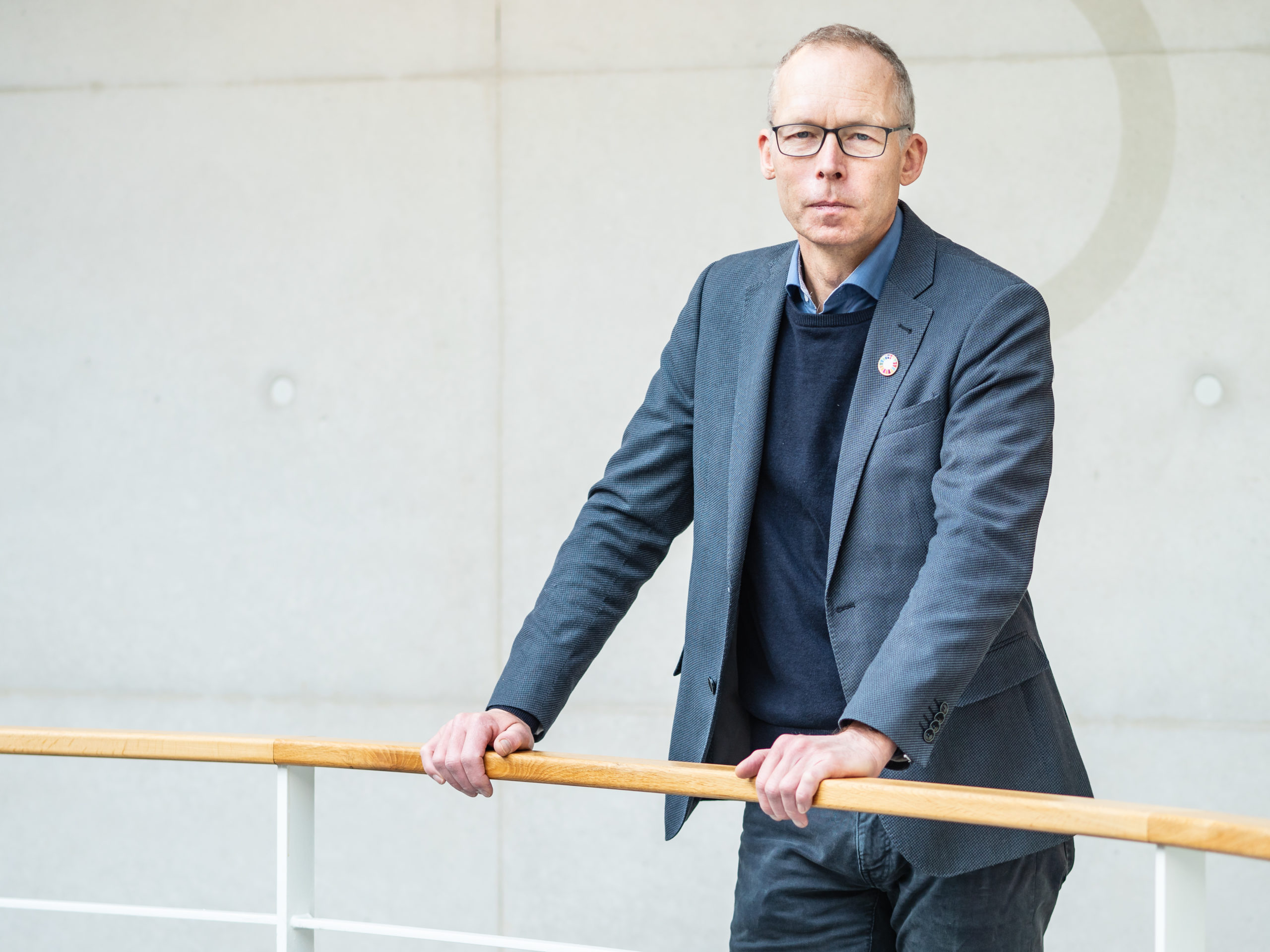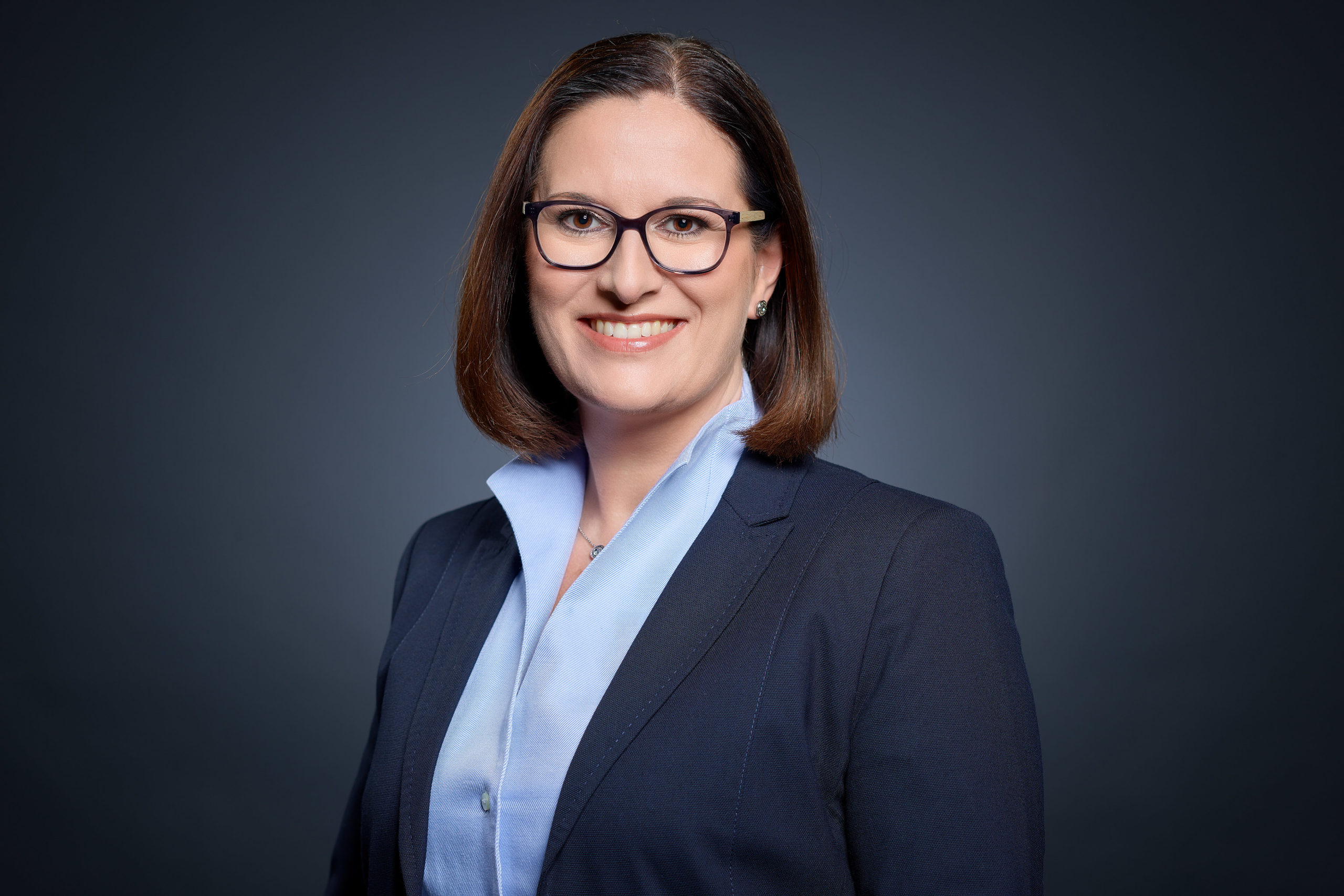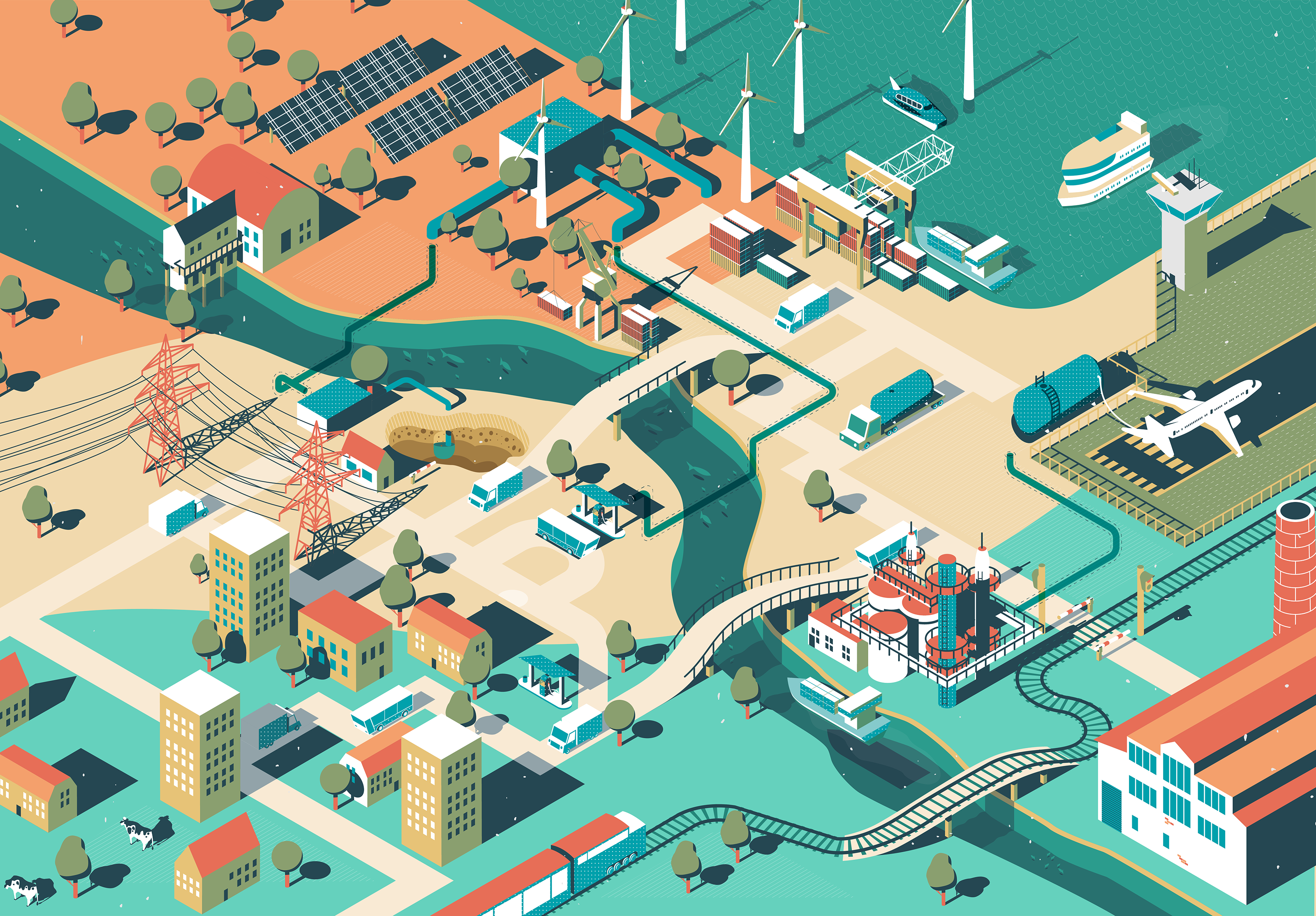Sustainability – Now More Than Ever
The Covid-19 pandemic sent shock waves through businesses and the economy. In consequence, sustainability could fade into the background—or become an even more important factor for success.

“These are extraordinary times. And we face an extraordinary challenge.” This is how John F. Kennedy started his special message to Congress in May of 1961, in which he announced the goal of sending a human being to the moon before the end of the decade. The idea seemed impossible at first, yet it touched off a contest that achieved the seemingly impossible just eight years later, and demonstrated that humanity is quite able to take giant leaps.
For the Swedish Earth system scientist Professor Johan Rockström – Director of the Potsdam Institute for Climate, which is based in Brandenburg’s capital and investigates scientifically and socially significant issues in the areas of global change, climate impact, and sustainable development – the year 1961 is comparable to the current situation: “Now we are announcing our goal to cut emissions and reduce greenhouse gases in Europe by at least 50 percent in ten years.” And even if so far no nation has started to take on this “moon shot” in terms of sustainability and established sufficiently comprehensive policies, the corona pandemic at the latest sets us the decisive ultimatum: “This terrible pandemic comes with an important signal: for better or worse, we are not so much caught in the status quo as we often believe.”
Crises as opportunities for sustainable action
The climate expert, who is in great demand worldwide, takes a critical view of the current situation: “We currently do not see the changes that science shows we need to make to stabilize the climate – and avoid further dangerous impacts with irreversible damage to our life-support system: our planet.” But at the same time, he said, a significant shift has taken place over the last five years. Sustainability is increasingly perceived by companies as a strategic core task and established as a success factor in competition: “These two trends must be combined. We are currently at a transformation point. Some businesses are seizing the opportunity and pioneering, while others keep on tiptoeing and will soon be laggards.”
Governments, business, and the public are all called upon to apply new approaches and solutions.
A worldwide crisis like the Covid-19 pandemic could launch a development that enables this transformation to succeed, and thus lay the groundwork for greater sustainability. “Governments, business, and the public are all called upon to apply new approaches and solutions,” says Professor Lucia Reisch, the spokesperson for the Porsche Sustainability Council. “Yes, we should be devoting all the necessary resources to beating the virus right now. Yet it would be negligent if we ignored long-term and more fundamental threats like climate change and thereby hindered measures needed to avert them.” A professor of consumer behavior and consumer policy at Copenhagen Business School, she notes the need to learn from the past. As recently as 2008, milestones long since achieved were set back by years as a result of the financial crisis.

Precisely because the pandemic, while rooted in environmental issues, now affects human health and security issues, it might accelerate change.
Despite this risk, scientists like Rockström have a hopeful view: “I’m quite optimistic here, actually. This devastating shake-up caused by the corona virus is gradually opening up the opportunity to recover in a way that builds more sustainable and resilient societies in the future.” That is because Covid-19 has made one thing clear: there is a link between human intervention in natural habitats and global crises like this. According to Rockström, the positive impulse lies in this understanding: “Precisely because the pandemic, while rooted in environmental issues, now affects human health and security issues, it might accelerate change.” In concrete terms, this means that more than ever, companies are now called upon to develop solutions for climate-neutral mobility or to establish use of resources in balance with nature that will also preserve a liveable world for future generations.
Clear action instead of lip service
At the moment, however, the pandemic and the associated economic damage have compelled many companies to focus primarily on cost reduction and liquidity. Sustainability is often relegated to a secondary role. Yet Birgit Engler, a partner at the Porsche Consulting management consultancy, says now is precisely the time to put sustainability at the top of the agenda as a key to success. “In the future, commercial success will depend not only on economic factors but also on responsible social and ecological action. Now is the time for companies to set this course and to strongly integrate sustainability.” Priorities should be placed on foresight and value-adding growth instead of short-term optimization of the bottom line. Flowery words and lip service will not do the job. “Clear actions and recognizable results are needed in order to build trust,” she says.
Now we’re getting down to essentials.
This is confirmed by experts on renewable energy such as Dr. René Backes from BASF, the world’s largest chemical corporation by sales. A chemist and specialist in business development, Backes works as a scout at the Swedish office of the German corporation. For him, the main problem is ecological. “We already need huge amounts of energy and resources. And to meet these needs, fossil fuels are virtually the only resource we’ve been finding.” Although BASF has managed to cut its total greenhouse gas emissions in half since the 1990s while also doubling its production, the company is now at a point where it’s no longer as easy to go on reducing. “But because we want to continue making substantial improvements, we’re now getting down to essentials.”
This policy forms the basis for Backes’ work. He is active in BASF’s Nordic region—covering Sweden, Norway, Denmark, and Finland—where he scouts for value-adding sequences that are quite literally new. “I try to identify ways of achieving the raw material transition—like how to replace petroleum with recyclables or renewable biofuels.” With the help of a long-term sustainability strategy, BASF has established itself as the number one partner for sustainable chemical production in the Nordic countries. According to Backes, the region is five to ten years ahead of other areas and is serving as a type of “petri dish” for the future. It, and thereby also the chemical industry worldwide, are developing solutions that could play a pioneering role in energy production over the long term. But this takes time, and also the insight required to place sustainability at the core of all business decisions.
Best practices
Sustainability is no easy business? These companies beg to differ—and are blazing new trails.

Award for Fischerwerke
Fischer received the 2020 German Sustainability Award in the “large businesses” category for its comprehensive approach and for integrating sustainability into its corporate strategy.

From toys to screw anchors, Fischer incorporates sustainability into all of its products with the help of clean power, resource-saving raw materials, and biofuels where possible. It focuses not only on profitability but also on social issues such as work quality and safety. It uses a sustainability compass to monitor the compatibility of its strategies and aims.

Stora Enso Goes for Growth
This Finnish-Swedish forestry product company is considered a pioneer in bioeconomics, and is one of the world’s leading providers of renewable solutions.

Packaging, biomaterials, timber structures, paper—Stora Enso develops products and technologies based on renewable materials. A sustainable approach dominates its entire commercial chain, including how it selects its suppliers, advises its clients, and reports to investors.

Frosta—Natural inside and out
This German frozen goods producer is a master of simplicity. Its in-house “purity command” prohibits all additives.

In 2003 Frosta adopted an uncompromising strategy. Its products would be 100% free of additives and 100% honest—and would list the exact origin of every ingredient. And outside the products? Since 2016 all of Frosta’s plastic packaging has been made from a material that is easier to recycle. In 2020 the company introduced the first paper-bag packaging for frozen goods.

Adidas Makes Plastic Fashionable
Adidas is known the world over for its sportswear, sports equipment, and shoes. The first completely recyclable shoes should be available by 2021.

More than half of all Adidas products already contain recycled plastic from reprocessed waste retrieved from beaches and coastal regions. A new running shoe made of 100% recyclable material should now enable a closed loop. It can be produced again and again—without waste.

SKF—Everything Flows
By remanufacturing its products instead of replacing them, the Swedish company SKF (Svenska Kullagerfabriken) has become a model for sustainable recycling management.

Advanced condition-monitoring techniques for rolling bearings, lubrication systems, and seals enable prompt repairs instead of disposal. Remanufacturing bearings takes 80 percent less energy than making new ones, and brings 20 to 50 percent reductions in costs, time, and materials.
We want to make the world’s most environmentally friendly batteries.
Employees as the most powerful factor
The importance of sustainability as a competitive edge can become especially evident when anchored in a corporate strategy. Northvolt is a good example. This Swedish start-up seeks to become Europe’s largest manufacturer of battery cells and systems, and thereby facilitate the transition to electromobility. “We want to make the world’s most environmentally friendly batteries,” explains Emma Nehrenheim, Northvolt’s chief environmental officer. The company has therefore developed an overall strategy that incorporates the key role of sustainability in a variety of ways. Developing a recycling management system by which most of the raw materials come from discarded batteries is just one part of that strategy. With the help of sustainability teams in all of its divisions, Northvolt wants to minimize the environmental footprint of not only all its products but also its factories and the company as a whole. Measures include using only clean power to acquire its raw materials. Moreover, all of the company’s 700 employees have recognized the value of sustainability and made it a natural part of their daily routines. That, says Nehrenheim, is the most powerful factor. “All of us take a long-term view of everything we do, in order to prevent our actions today from causing problems for the environment in the future.”

Sustainability has to be part of corporate strategies. It needs to be visible in targets and effective initiatives, and anchored in company structures, processes, and cultures.
The success of individual companies can serve as beacons of progress, but to achieve decisive results everybody has to get involved, says sustainability expert Birgit Engler. Despite the current climate of uncertainty, the consultant emphasizes the need to continue resolutely promoting sustainability, incorporating it into all aspects of economic life, and motivating people to change their outlooks. The current disruption in our usual patterns of behavior offers a good opportunity to examine and realign existing systems and habitual practices. “Sustainability has to be part of corporate strategies. It needs to be visible in targets and effective initiatives, and anchored in company structures, processes, and cultures. If companies can convincingly combine high economic performance, social responsibility, and substantially lower environmental impact, that will give them real added value,” she explains. Higher levels of employee and customer loyalty, better access to outside financing, easier acquisition of new business fields, and long-term increases in company value as well as crisis resilience are examples of the competitive advantages offered by sustainability.
Rockström is also critical of viewing sustainability in too narrow terms. It is time to recognize how social, economic, and ecological phenomena are interdependent. Covid-19 has shown exactly that. Now is the time to act accordingly and take another big step for humanity.
